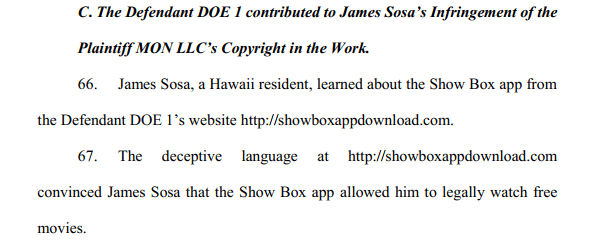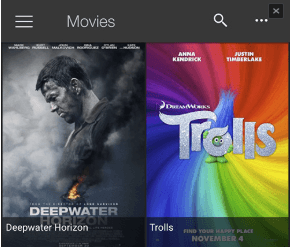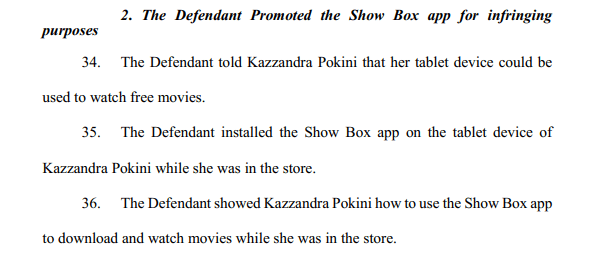Legal Blackmail: Zero Cases Brought Against Alleged Pirates in Sweden
vendredi 25 mai 2018 à 09:47 While several countries in Europe have wilted under sustained pressure from copyright trolls for more than ten years, Sweden managed to avoid their controversial attacks until fairly recently.
While several countries in Europe have wilted under sustained pressure from copyright trolls for more than ten years, Sweden managed to avoid their controversial attacks until fairly recently.
With Germany a decade-old pit of misery, with many hundreds of thousands of letters – by now probably millions – sent out to Internet users demanding cash, Sweden avoided the ranks of its European partners until two years ago
In September 2016 it was revealed that an organization calling itself Spridningskollen (Distribution Check) headed up by law firm Gothia Law, would begin targeting the public.
Its spokesperson described its letters as “speeding tickets” for pirates, in that they would only target the guilty. But there was a huge backlash and just a couple of months later Spridningskollen headed for the hills, without a single collection letter being sent out.
That was the calm before the storm.
In February 2017, Danish law firm Njord Law was found to be at the center of a new troll operation targeting the subscribers of several ISPs, including Telia, Tele2 and Bredbandsbolaget. Court documents revealed that thousands of IP addresses had been harvested by the law firm’s partners who were determined to link them with real-life people.
Indeed, in a single batch, Njord Law was granted permission from the court to obtain the identities of citizens behind 25,000 IP addresses, from whom it hoped to obtain cash settlements of around US$550. But it didn’t stop there.
Time and again the trolls headed back to court in an effort to reach more people although until now the true scale of their operations has been open to question. However, a new investigation carried out by SVT has revealed that the promised copyright troll invasion of Sweden is well underway with a huge level of momentum.
Data collated by the publication reveals that since 2017, the personal details behind more than 50,000 IP addresses have been handed over by Swedish Internet service providers to law firms representing copyright trolls and their partners. By the end of this year, Njord Law alone will have sent out 35,000 letters to Swede’s whose IP addresses have been flagged as allegedly infringing copyright.
Even if one is extremely conservative with the figures, the levels of cash involved are significant. Taking a settlement amount of just $300 per letter, very quickly the copyright trolls are looking at $15,000,000 in revenues. On the perimeter, assuming $550 will make a supposed lawsuit go away, we’re looking at a potential $27,500,000 in takings.
But of course, this dragnet approach doesn’t have the desired effect on all recipients.
In 2017, Njord Law said that only 60% of its letters received any kind of response, meaning that even fewer would be settling with the company. So what happens when the public ignores the threatening letters?
“Yes, we will [go to court],” said lawyer Jeppe Brogaard Clausen last year.
“We wish to resolve matters as much as possible through education and dialogue without the assistance of the court though. It is very expensive both for the rights holders and for plaintiffs if we go to court.”
But despite the tough-talking, SVT’s investigation has turned up an interesting fact. The nuclear option, of taking people to court and winning a case when they refuse to pay, has never happened.
After trawling records held by the Patent and Market Court and all those held by the District Courts dating back five years, SVT did not find a single case of a troll taking a citizen to court and winning a case. Furthermore, no law firm contacted by the publication could show that such a thing had happened.
“In Sweden, we have not yet taken someone to court, but we are planning to file for the right in 2018,” Emelie Svensson, lawyer at Njord Law, told SVT.
While a case may yet reach the courts, when it does it is guaranteed to be a cut-and-dried one. Letter recipients can often say things to damage their case, even when they’re only getting a letter due to their name being on the Internet bill. These are the people who find themselves under the most pressure to pay, whether they’re guilty or not.
“There is a risk of what is known in English as ‘legal blackmailing’,” says Mårten Schultz, professor of civil law at Stockholm University.
“With [the copyright holders’] legal and economic muscles, small citizens are scared into paying claims that they do not legally have to pay.”
It’s a position shared by Marianne Levine, Professor of Intellectual Property Law at Stockholm University.
“One can only show that an IP address appears in some context, but there is no point in the evidence. Namely, that it is the subscriber who also downloaded illegitimate material,” she told SVT.
Njord Law, on the other hand, sees things differently.
“In Sweden, we have no legal case saying that you are not responsible for your IP address,” Emelie Svensson says.
Whether Njord Law will carry through with its threats will remain to be seen but there can be little doubt that while significant numbers of people keep paying up, this practice will continue and escalate. The trolls have come too far to give up now.
Source: TF, for the latest info on copyright, file-sharing, torrent sites and more. We also have VPN reviews, discounts, offers and coupons.
 For many years media companies have focused their anti-piracy efforts on pirate sites, including torrent and streaming portals.
For many years media companies have focused their anti-piracy efforts on pirate sites, including torrent and streaming portals. 

 In recent years, a group of select companies have pressured hundreds of thousands of alleged pirates to pay significant settlement fees, or face legal repercussions.
In recent years, a group of select companies have pressured hundreds of thousands of alleged pirates to pay significant settlement fees, or face legal repercussions.
